Health Risks and Allergies Related to Chia Seeds
5 Best Insights Into Hazards of Consumed Seeds

Greetings, valued readers, to our enlightening article on the dangers of ingesting seeds.
Today, we will explore five essential insights that shed light on these potential dangers. From allergies and sensitivities to digestive issues, we aim to provide you with a comprehensive understanding of the risks involved.
Additionally, we will delve into concerns regarding calcium and oxalate, interactions with medications, and the presence of contamination and pesticide residues.
Join us as we navigate this important topic, serving you vital knowledge along the way.

Key Takeaways
- Allergies and sensitivities to seeds can occur, and cross-reactivity can lead to allergic reactions. It is important for individuals with known allergies or sensitivities to be cautious when consuming seeds and read ingredient labels.
- Seeds high in fiber can cause digestive issues such as bloating and gas if consumed excessively. Soaking or sprouting seeds can reduce phytic acid levels and aid digestion. Individuals with allergies or sensitivities should be aware of potential digestive issues related to seed consumption.
- Some seeds have varying levels of calcium and oxalate content. Individuals with kidney stones or hyperoxaluria may need to consume seeds with high oxalate content in moderation or avoid them. Seeds high in calcium should be consumed with caution by individuals with calcium-related dietary restrictions.
- Seeds can interact with certain medications, such as grapefruit seed extract interfering with statins and antihistamines. It is important to consult with a healthcare professional before incorporating seeds into the diet while taking medications.
Allergies and Sensitivities
We have found that some individuals may react adversely to ingested seeds, experiencing allergic reactions or sensitivities. These reactions can be triggered by various factors, including cross reactivity and hidden ingredients.
Cross reactivity occurs when the body’s immune system mistakenly identifies a protein in the seeds as harmful and launches an allergic response. This can happen if the individual is already allergic to a similar protein found in another food or substance.
Hidden ingredients, such as additives or contaminants, can also contribute to allergic reactions or sensitivities. It’s essential for individuals with known allergies or sensitivities to be cautious when consuming seeds and to carefully read ingredient labels to avoid any potential triggers.
Potential Digestive Issues
Some seeds can cause digestive issues when consumed. It’s important to be aware of the potential risks and take necessary precautions. Here are some key points to consider regarding the potential digestive issues related to seed consumption:

-
Fiber Content: Seeds are often high in fiber, which can be beneficial for digestion. However, excessive intake of fiber can lead to bloating, gas, and abdominal discomfort. It’s essential to consume seeds in moderation and gradually increase intake to allow the body to adjust.
-
Phytic Acid: Some seeds contain phytic acid, which can interfere with the absorption of certain minerals like iron, zinc, and calcium. Soaking or sprouting seeds can help reduce phytic acid levels and enhance their nutritional value.
-
Seed Shells: The hard shells of some seeds can be difficult to digest, especially if consumed in large quantities. Chewing thoroughly or grinding seeds before consumption can aid in digestion and prevent any discomfort.
-
Allergic Reactions: Certain individuals may have allergies or sensitivities to specific seeds. It’s important to be aware of any potential allergies and avoid consuming seeds that may cause adverse reactions.
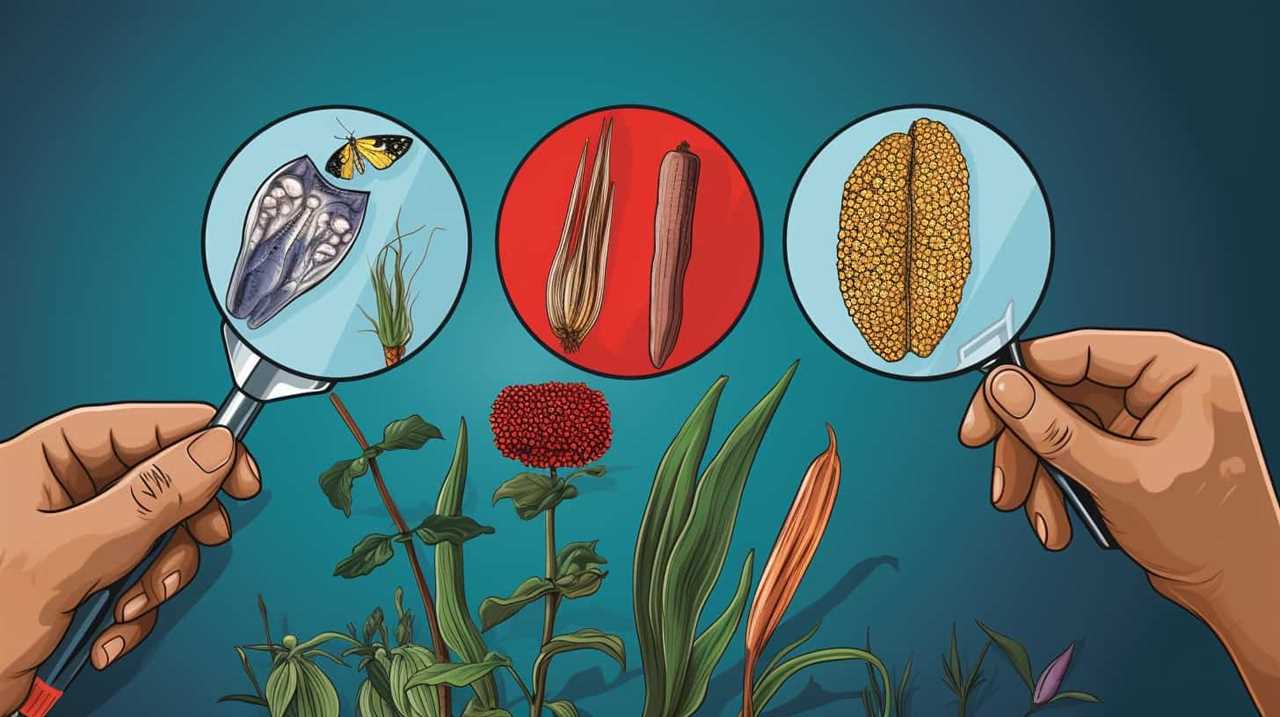
Understanding the potential digestive issues associated with seed consumption can help individuals make informed decisions about their nutritional value and recommended consumption levels. It’s always advisable to consult with a healthcare professional or nutritionist for personalized advice.
Calcium and Oxalate Concerns
Exploring the implications of calcium and oxalate concerns when consuming seeds, it is important to understand the potential impact on our overall health and well-being. While seeds are generally considered a healthy addition to our diet, certain seeds may pose dietary restrictions for individuals with specific health conditions. Calcium and oxalate are two components found in seeds that can have long-term effects on our health.
| Seed Type | Calcium Content (mg) | Oxalate Content (mg) |
|---|---|---|
| Chia Seeds | 177 | 50 |
| Pumpkin Seeds | 18 | 9 |
| Sesame Seeds | 975 | 30 |
| Flaxseeds | 26 | 9 |
For individuals with a history of kidney stones or hyperoxaluria, seeds with high oxalate content, such as chia seeds and sesame seeds, may need to be consumed in moderation or avoided altogether. Additionally, individuals with calcium-related dietary restrictions should be cautious when consuming seeds that are high in calcium, like sesame seeds. It is important to consult with a healthcare professional or a registered dietitian to ensure that seeds are consumed in a manner that aligns with individual health needs and goals.
Interactions With Medications
When considering the hazards of consumed seeds, it’s important to examine their potential interactions with medications. Seeds are often touted for their health benefits, but it’s crucial to be aware of any potential drug interactions that may occur. Here are some precautions to keep in mind:

-
Grapefruit Seed Extract: It can interfere with certain medications, such as statins, antihistamines, and anti-anxiety drugs.
-
Flaxseeds: These seeds may interact with blood thinners, such as warfarin, due to their high omega-3 fatty acid content.
-
Chia Seeds: They can potentially affect the absorption of medications due to their high fiber content.
-
Pumpkin Seeds: These seeds contain phytosterols that may interfere with the absorption of cholesterol-lowering medications.

It is important to consult with a healthcare professional before incorporating seeds into your diet if you’re taking any medications. They can provide guidance on potential interactions and help ensure your safety.
Contamination and Pesticide Residues
One significant concern regarding consumed seeds is the presence of contamination and pesticide residues. These contaminants can have a detrimental impact on our health and the environment.
Pesticides used in conventional farming can leave behind residues on seeds, which can then be ingested when consumed. This poses a risk to human health, as these chemicals have been linked to various health issues, including cancer and reproductive problems.
Furthermore, the environmental impact of pesticide use is significant, as it can contaminate water sources, harm beneficial insects, and disrupt ecosystems.
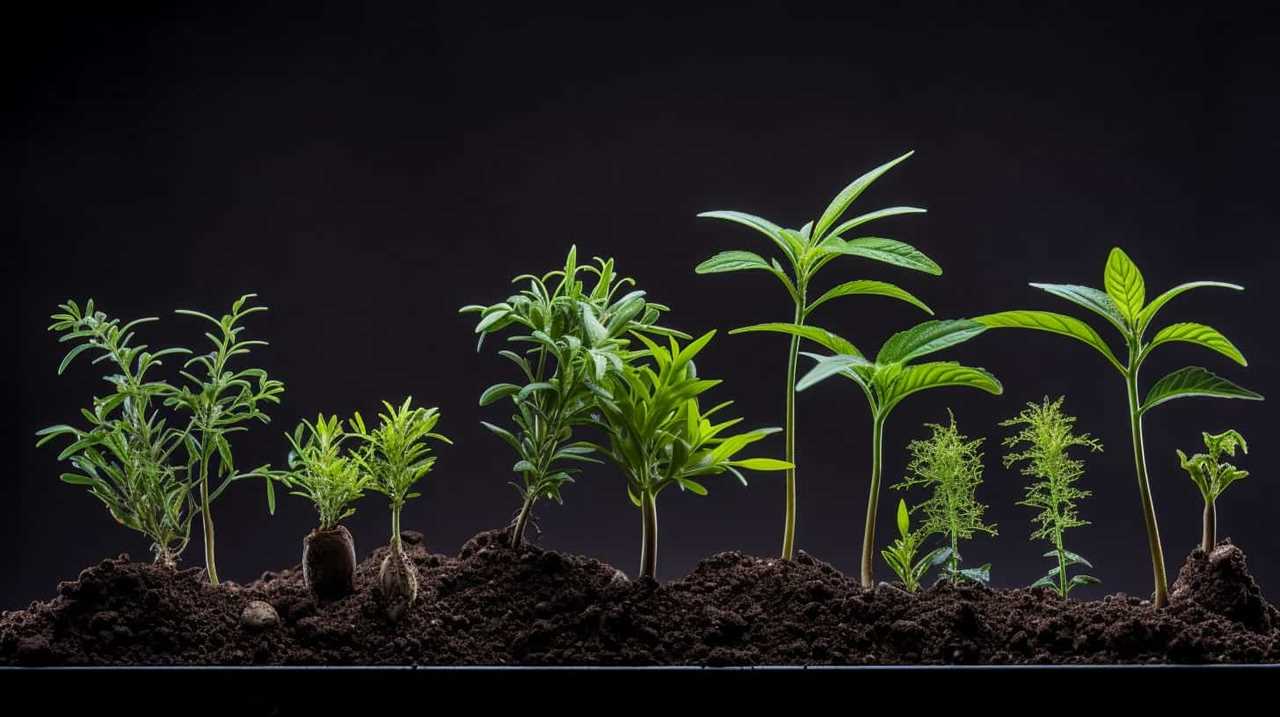
To address these concerns, organic farming alternatives offer a solution. By avoiding the use of synthetic pesticides and focusing on natural methods of pest control, organic farming reduces the risk of contamination and protects the environment.
Frequently Asked Questions
Are There Any Seeds That Are Safe for Individuals With Allergies or Sensitivities?
Safe seed alternatives for individuals with allergies or sensitivities include chia seeds, flaxseeds, and sunflower seeds. It is important to carefully manage seed allergies by reading labels, avoiding cross-contamination, and consulting with a healthcare professional.
Can Consuming Seeds Lead to Constipation or Other Digestive Issues?
Consuming seeds can potentially lead to constipation and other digestive issues. It is important to be aware of the risks associated with seed consumption and to make informed choices regarding our dietary habits.
Do Certain Seeds Have Higher Levels of Calcium and Oxalate, and if So, Should They Be Avoided?
Certain seeds can have higher levels of calcium and oxalate, which may have implications for health and dietary choices. It’s important to be aware of these levels and consider the potential risks and benefits before consuming them.
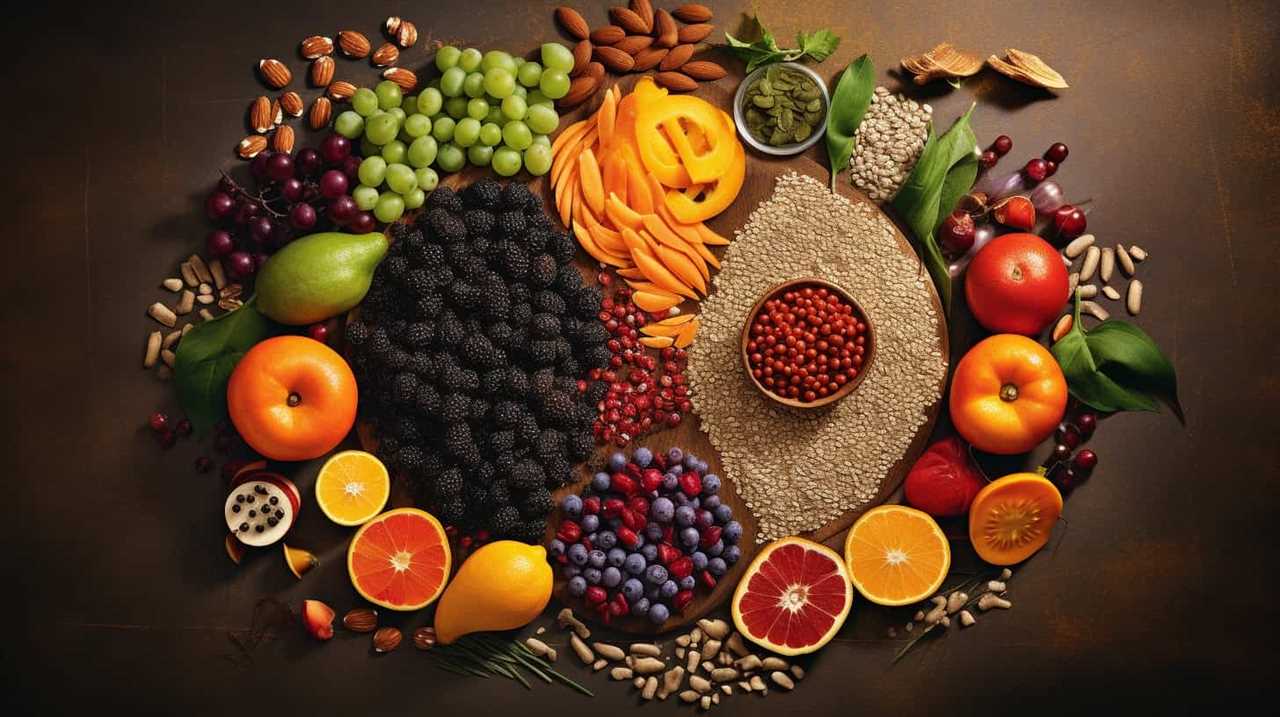
Are There Any Medications That Should Not Be Taken With Certain Types of Seeds?
Sure! We’ve looked into medication interactions with certain types of seeds. It’s important to be cautious because some seeds can interfere with the effectiveness of certain medications or cause allergic reactions.
How Can Consumers Ensure That the Seeds They Purchase Are Free From Contamination and Pesticide Residues?
To ensure consumer safety and avoid pesticide residues, we can carefully choose seeds from reputable sources, look for organic or non-GMO labels, and check for third-party certifications. It’s important to be informed and vigilant about the seeds we consume.
Conclusion
In conclusion, it’s important to be aware of the potential hazards associated with consumed seeds.
From allergies and digestive issues to concerns about calcium and oxalate levels, seeds can have various impacts on our health.

Interactions with medications and the risk of contamination and pesticide residues are also factors to consider.
By staying informed and making informed choices, we can ensure our well-being and enjoy the benefits of seeds while minimizing any potential risks.
Hi, I’m Sarah. I write for Turtle Tree Seeds, a news blog that loves food – all kinds of food. But especially bacon, chocolate, and veggies. We’re on a mission to show the world that you can enjoy all of those things, even kale and brussels sprouts. Because we believe that when it comes to food, there’s no such thing as guilty pleasures. Just pleasures.
I’m also a huge fan of puns (obviously).
Health Risks and Allergies Related to Chia Seeds
10 Best Indicators of Seed Allergy Symptoms
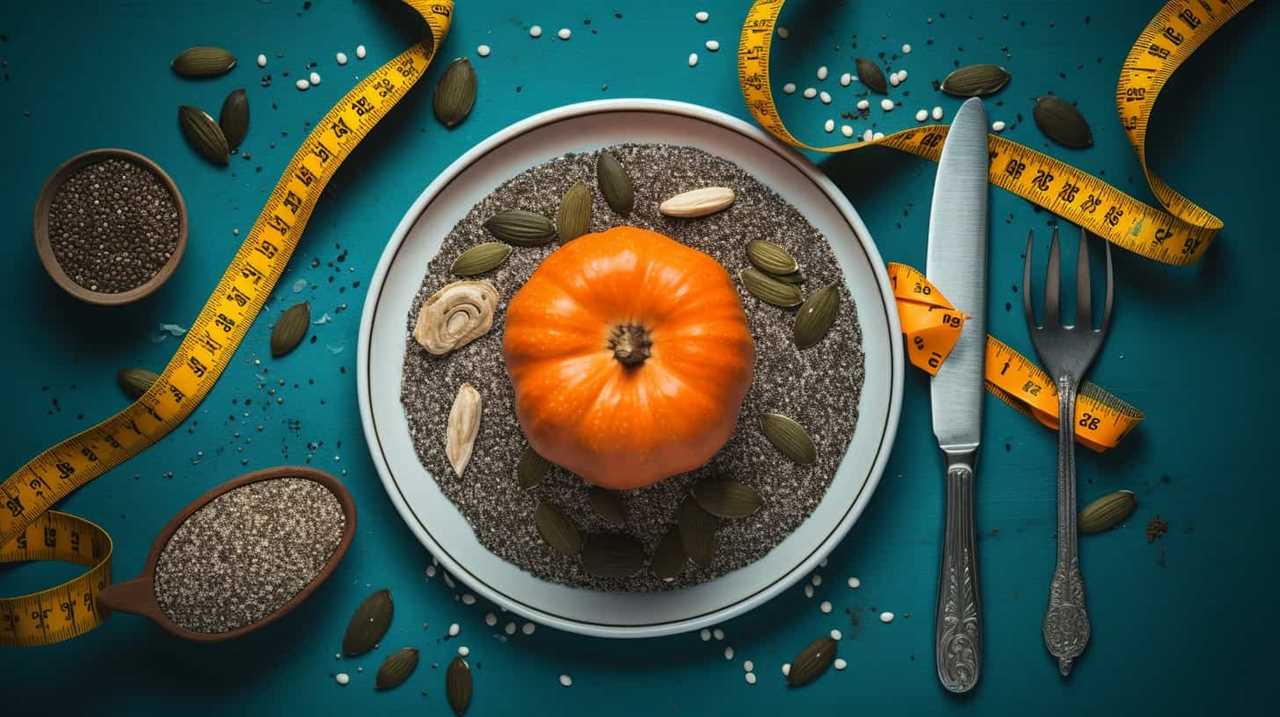
Are you curious about the specific signs of seed allergies?
Well, we’ve got the scoop for you! Our team of experts has compiled a list of the top 10 indicators to help you identify these pesky symptoms.
From skin rashes and hives to difficulty breathing and wheezing, we’ve got you covered.
So, sit back, relax, and let us guide you through the world of seed allergy symptoms.
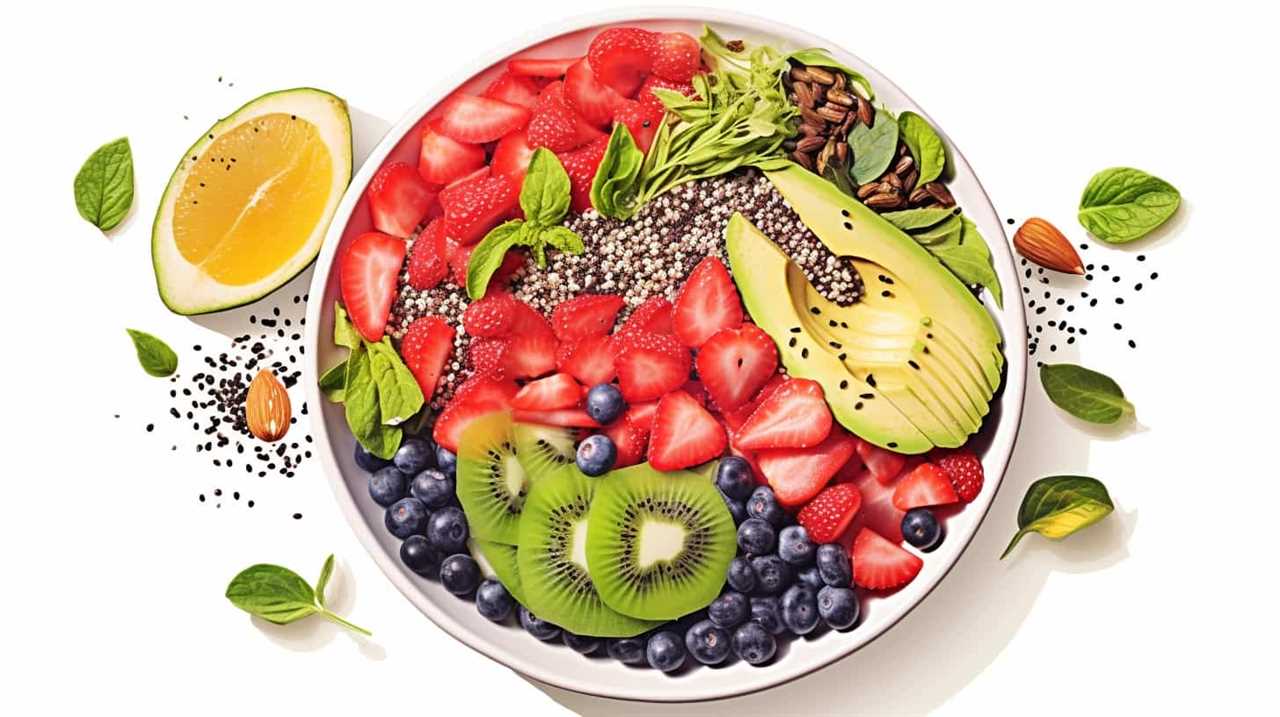
You won’t want to miss out on this valuable information!
Key Takeaways
- Skin rashes and hives after consuming seeds are common indicators of seed allergy symptoms.
- Swelling of the face or throat, accompanied by hives, difficulty breathing, or chest tightness, can be life-threatening and should be immediately addressed.
- Difficulty breathing, wheezing, and chest tightness are clear signs of a seed allergy and should not be ignored.
- Nausea, vomiting, and other gastrointestinal symptoms may occur in individuals with seed allergies and seeking medical attention is important for management and relief.
Skin Rashes and Hives
Skin rashes and hives can appear within minutes to hours after consuming seeds. These symptoms are often the first sign of an allergic reaction to seeds. The skin may become red, inflamed, and itchy, causing significant discomfort. Itchy skin is a common indicator of an allergic response, as the body’s immune system reacts to the proteins present in the seeds.
Allergic reactions occur when the immune system mistakenly identifies these proteins as harmful substances. As a result, the body releases histamines, leading to the characteristic rash and hives. It’s important to note that these symptoms can vary in severity, ranging from mild irritation to more severe reactions.
In the subsequent section, we’ll discuss another significant symptom of seed allergies: swelling of the face or throat.

Swelling of the Face or Throat
One of the most alarming indicators of a seed allergy is the swelling of our face or throat. This symptom, known as angioedema, can occur rapidly and can be life-threatening if not managed promptly.
Swelling of the face or throat is usually accompanied by other allergic reactions such as hives, difficulty breathing, or a feeling of tightness in the chest. If you experience swelling in these areas after consuming seeds or any seed-based products, it’s essential to seek immediate medical attention.
To manage swelling effectively, it’s crucial to follow proper allergic reaction prevention measures, such as avoiding seeds altogether and carrying an epinephrine auto-injector if you have a known seed allergy. Prompt intervention and proper swelling management are vital to prevent severe complications and ensure your safety.
Difficulty Breathing or Wheezing
When it comes to seed allergies, difficulty breathing or wheezing are important symptoms to consider. These symptoms can manifest as chest tightness or constriction, making it hard to take a deep breath.
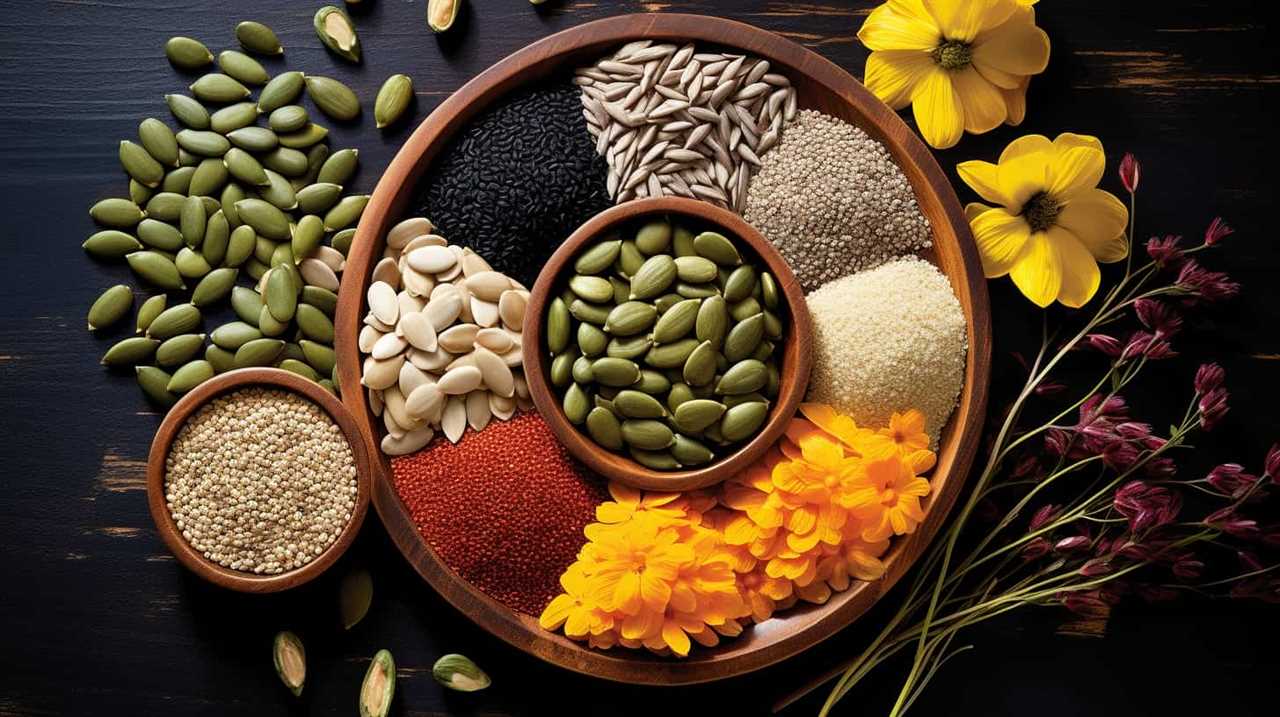
Additionally, individuals may experience shortness of breath, feeling like they’re unable to get enough air. These indicators can be a clear sign of a seed allergy and shouldn’t be ignored.
Chest Tightness or Constriction
How can we identify chest tightness or constriction as a symptom of seed allergy?
Chest discomfort and breathing difficulties are common manifestations of seed allergies. When a person with a seed allergy comes into contact with seeds, their immune system reacts by releasing histamine and other chemicals, causing inflammation in the airways.
This inflammation can lead to chest tightness or constriction, making it difficult for the individual to breathe properly. They may experience a sensation of pressure or heaviness in the chest, and in some cases, it may feel as though their breathing is restricted or wheezing may occur.

It’s important to note that chest tightness can be a serious symptom and may indicate an anaphylactic reaction, which requires immediate medical attention. If you or someone you know experiences chest tightness or constriction after consuming seeds, it’s essential to seek medical help promptly.
Shortness of Breath
We can continue the discussion about seed allergy symptoms by focusing on the shortness of breath or difficulty breathing, which may also be accompanied by wheezing. Shortness of breath can be a distressing symptom that can significantly impact an individual’s quality of life.
Here are some key points to consider regarding shortness of breath in the context of seed allergies:
-
Causes of shortness of breath: Seed allergies can trigger an immune response in the respiratory system, leading to inflammation and constriction of the airways. This can result in difficulty breathing and wheezing.

-
Treatment for shortness of breath: If you experience shortness of breath due to seed allergies, it’s important to seek medical attention. Treatment options may include avoiding allergens, using prescribed medications such as bronchodilators or corticosteroids, and implementing lifestyle changes to manage symptoms.
-
Managing anxiety: Shortness of breath can also be exacerbated by anxiety or panic attacks. Learning relaxation techniques, practicing deep breathing exercises, and seeking therapy can help manage anxiety-related breathing difficulties.
-
Seeking professional advice: It’s crucial to consult with a healthcare professional for an accurate diagnosis and personalized treatment plan for shortness of breath caused by seed allergies.
Itchy or Watery Eyes
The presence of itchy or watery eyes is a common indicator of seed allergy symptoms. Eye irritation, also known as allergic conjunctivitis, is a bothersome condition that often accompanies seed allergies. When exposed to seed allergens, such as peanuts or sesame seeds, the immune system releases histamine, causing inflammation and irritation in the eyes. This can result in symptoms like itching, redness, and excessive tearing.

Itchy or watery eyes can be particularly distressing, as they can interfere with daily activities and affect overall quality of life. Therefore, it’s important to recognize these symptoms as potential indicators of seed allergies and seek appropriate medical attention.
Moving forward, let’s explore another common symptom of seed allergies: nausea and vomiting.
Nausea and Vomiting
Experiencing nausea and vomiting is a common manifestation of seed allergy symptoms. These uncomfortable symptoms can significantly impact one’s quality of life.
When it comes to seed allergies, here are four potential causes of nausea and vomiting:

-
Inflammatory response: The body’s immune system reacts to the proteins found in seeds, triggering an inflammatory response that can lead to nausea and vomiting.
-
Histamine release: Seeds, such as sesame or poppy seeds, can contain high levels of histamine. In individuals with seed allergies, consuming these seeds can result in the release of histamine, causing gastrointestinal symptoms.
-
Cross-reactivity: People with existing allergies, such as pollen or latex allergies, may experience nausea and vomiting when exposed to certain seeds due to cross-reactivity.
-
Digestive issues: Some individuals may have difficulty digesting seeds, leading to digestive disturbances like nausea and vomiting.

Understanding the potential causes of nausea and vomiting in seed allergy symptoms can help individuals manage their condition effectively.
Now, let’s delve into the next subtopic: abdominal pain or cramps.
Abdominal Pain or Cramps
When seeds are ingested by individuals with a seed allergy, they may experience abdominal pain or cramps. These symptoms can be indicative of an allergic reaction to seeds.
Abdominal discomfort is a common manifestation of seed allergy, and it’s important to recognize this symptom in order to seek appropriate medical attention. Abdominal pain or cramps may occur shortly after consuming seeds or may develop gradually over time.
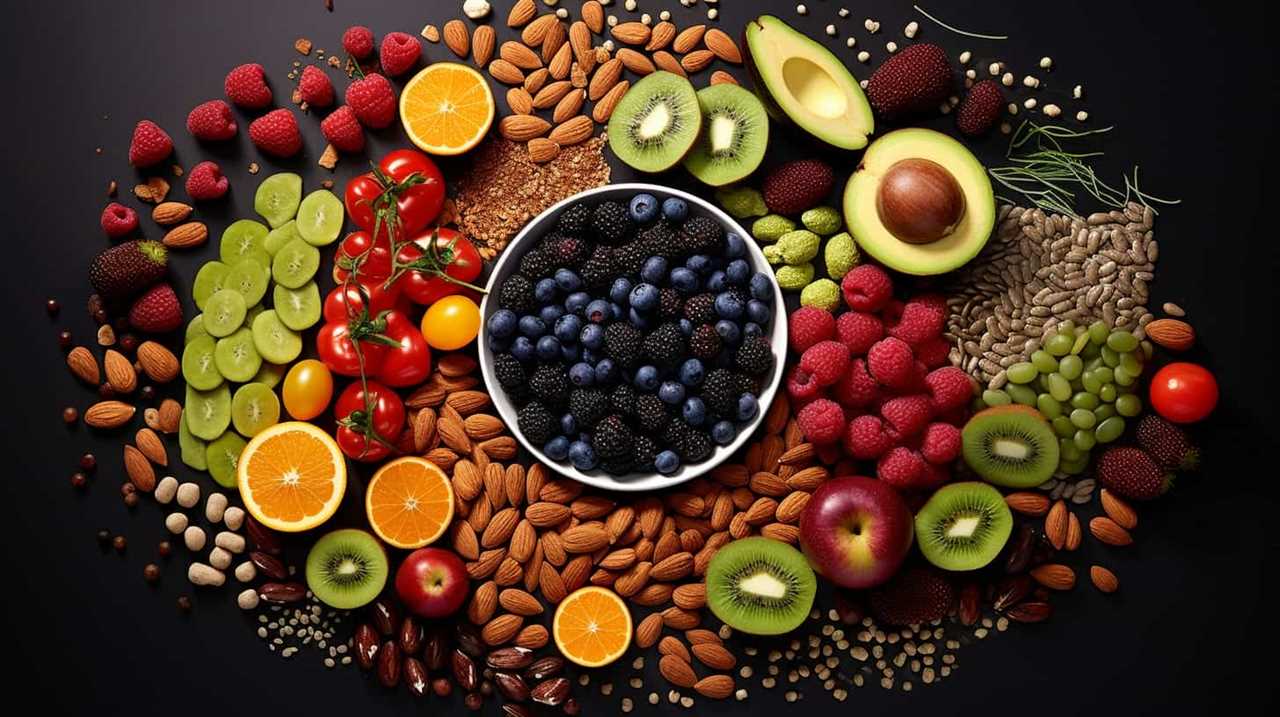
It’s crucial to note that the severity and duration of these symptoms can vary among individuals. If you or someone you know experiences persistent abdominal discomfort after consuming seeds, it’s recommended to consult with a healthcare professional for further evaluation and diagnosis.
Understanding and recognizing these signs can play a vital role in managing seed allergies and ensuring your overall well-being.
Diarrhea or Digestive Issues
We may also experience diarrhea or other digestive issues as a result of consuming seeds, indicating a potential allergy. When it comes to seed allergies, it’s important to consider the nutritional implications and management strategies. Here are four key points to keep in mind:
-
Nutritional implications: Diarrhea can lead to dehydration and nutrient deficiencies, as the body is unable to properly absorb essential vitamins and minerals. It’s crucial to address these nutritional gaps to maintain overall health.

-
Identifying trigger seeds: Keeping a food diary can help pinpoint the specific seeds that cause digestive issues. This information can then be shared with healthcare professionals for a more accurate diagnosis.
-
Avoidance and alternatives: If seeds are identified as the culprit, it’s recommended to avoid consuming them altogether. However, it’s important to find suitable alternatives that provide similar nutritional benefits.
-
Seek professional guidance: Consulting with a healthcare professional or allergist can provide valuable insights and personalized management strategies to effectively address seed allergies and alleviate digestive issues.
Headaches or Migraines
When it comes to seed allergy symptoms, headaches or migraines can often be indicators of an allergic reaction.

Visual disturbances, such as aura, are commonly associated with migraines and can be a sign of a seed allergy.
Additionally, the frequency and duration of headaches or migraines can provide valuable information about the severity and persistence of the allergic reaction.
Understanding these aspects can help individuals identify and manage their seed allergies effectively.
Visual Disturbances and Migraines
During episodes of seed allergy symptoms, individuals may experience visual disturbances and migraines. These symptoms can be debilitating and greatly impact one’s daily life. Here are four ways in which visual disturbances and migraines can manifest during a seed allergy episode:

-
Blurred vision: Individuals may notice a sudden blurriness in their vision, making it difficult to see clearly.
-
Sensitivity to light: Even normal light levels can become unbearable, causing discomfort and pain in the eyes.
-
Visual auras: Some individuals may experience visual disturbances such as flashing lights or zigzag patterns before the onset of a migraine.
-
Throbbing headaches: Migraines often accompany seed allergy symptoms, causing intense, pulsating pain that can last for hours or even days.
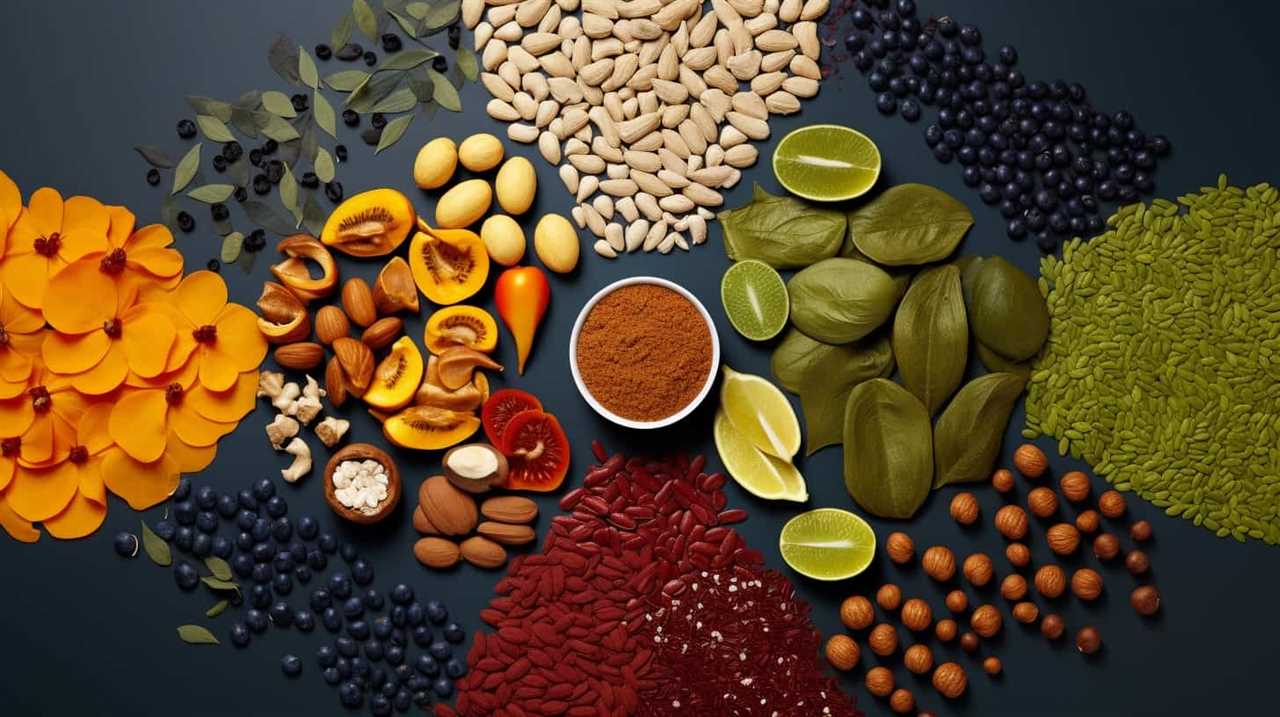
Understanding these visual disturbances and migraines as potential migraine triggers can help individuals better manage their seed allergy symptoms.
Now, let’s explore the frequency and duration differences of these symptoms.
Frequency and Duration Differences
As we delve deeper into the discussion of frequency and duration differences of headaches or migraines during seed allergy episodes, it’s important to consider the impact these symptoms have on individuals’ daily lives.
Understanding the frequency and duration of headaches or migraines can provide crucial insights into the severity of seed allergy reactions and help individuals manage their symptoms effectively.
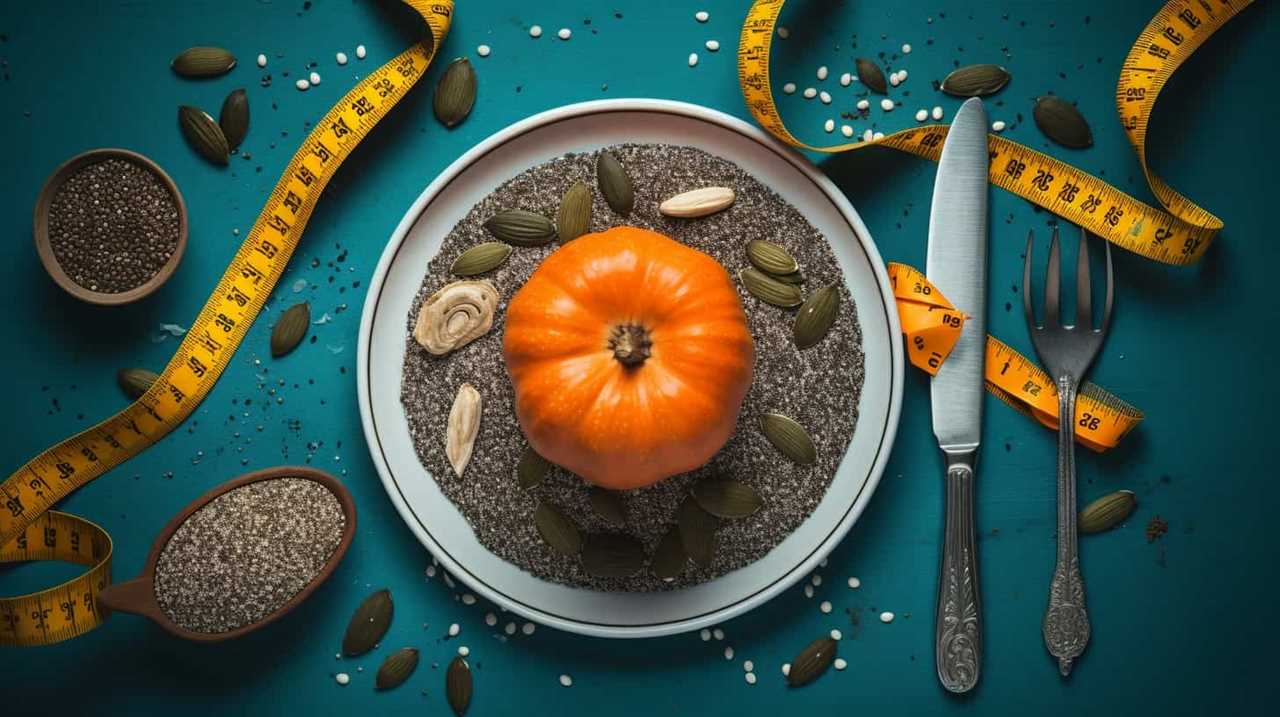
By comparing the frequency and duration of these episodes, we can identify patterns and triggers that may contribute to the onset of headaches or migraines. This knowledge allows individuals to make informed decisions about their daily activities, ensuring they can avoid potential triggers and minimize the impact on their daily lives.
Fatigue or Weakness
Our experience with seed allergy symptoms has shown that fatigue or weakness is a common manifestation. Fatigue is a state of extreme tiredness or exhaustion that can significantly impact one’s daily activities. When it comes to seed allergies, fatigue can be caused by various factors, including:
-
Inflammatory response: When the body reacts to seed allergens, it triggers an inflammatory response that can lead to fatigue or weakness.
-
Immune system activation: The immune system works hard to fight off the allergens, which can leave you feeling drained and fatigued.
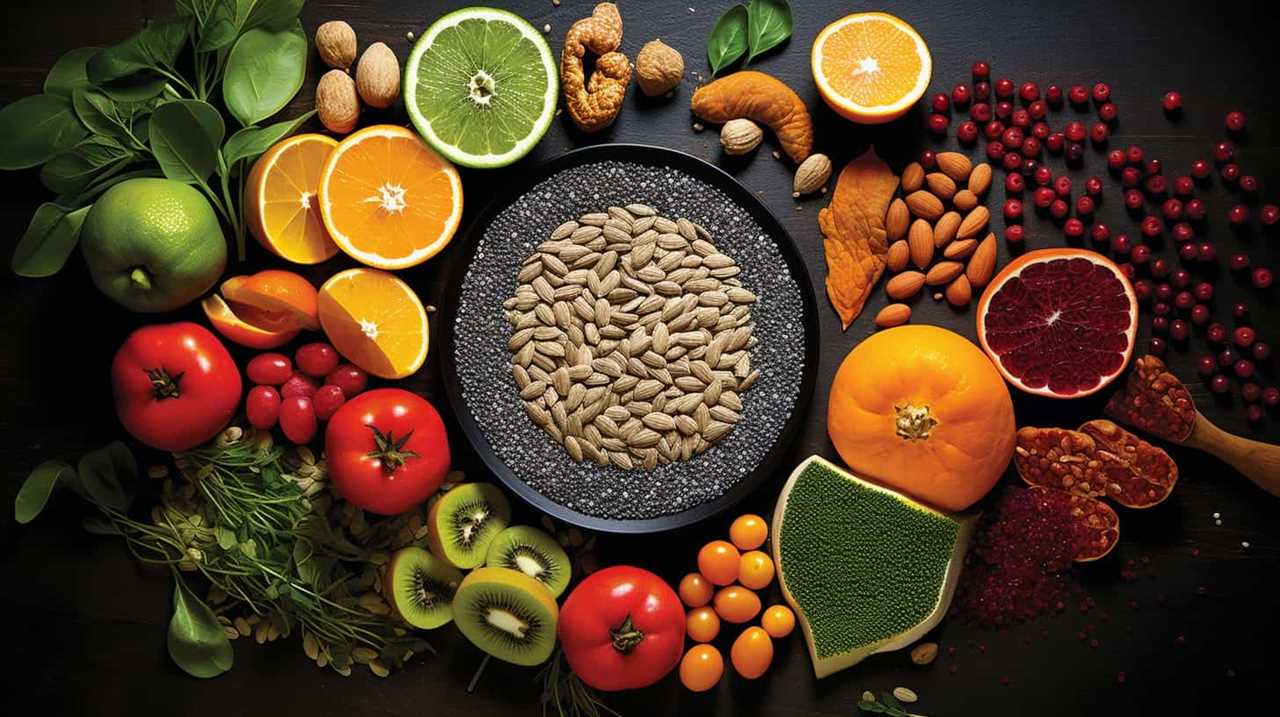
-
Sleep disturbances: Seed allergies can cause sleep disturbances like nasal congestion or itchy eyes, leading to poor quality sleep and increased fatigue.
-
Stress and anxiety: Dealing with the challenges of managing seed allergies can contribute to stress and anxiety, which can further exacerbate fatigue.
Managing fatigue caused by seed allergies involves proper allergy management, including identifying and avoiding triggers, taking prescribed medications, and practicing good sleep hygiene. It’s important to consult with a healthcare professional for personalized guidance in managing fatigue associated with seed allergies.
Anaphylaxis or Severe Allergic Reaction
When it comes to seed allergies, anaphylaxis or a severe allergic reaction is a critical concern. It can cause life-threatening symptoms and requires immediate medical attention.

Recognizing the signs of anaphylaxis and knowing the emergency treatment options can be crucial in preventing a fatal outcome.
Life-Threatening Symptoms Explained
During a severe allergic reaction to seed allergies, symptoms can be life-threatening. It’s important to be aware of these symptoms in order to seek immediate medical attention.
Here are four common life-threatening symptoms that may occur during an allergic reaction:
-
Difficulty breathing: This can include wheezing, shortness of breath, or a feeling of tightness in the chest. It may be accompanied by a rapid heartbeat and a drop in blood pressure.
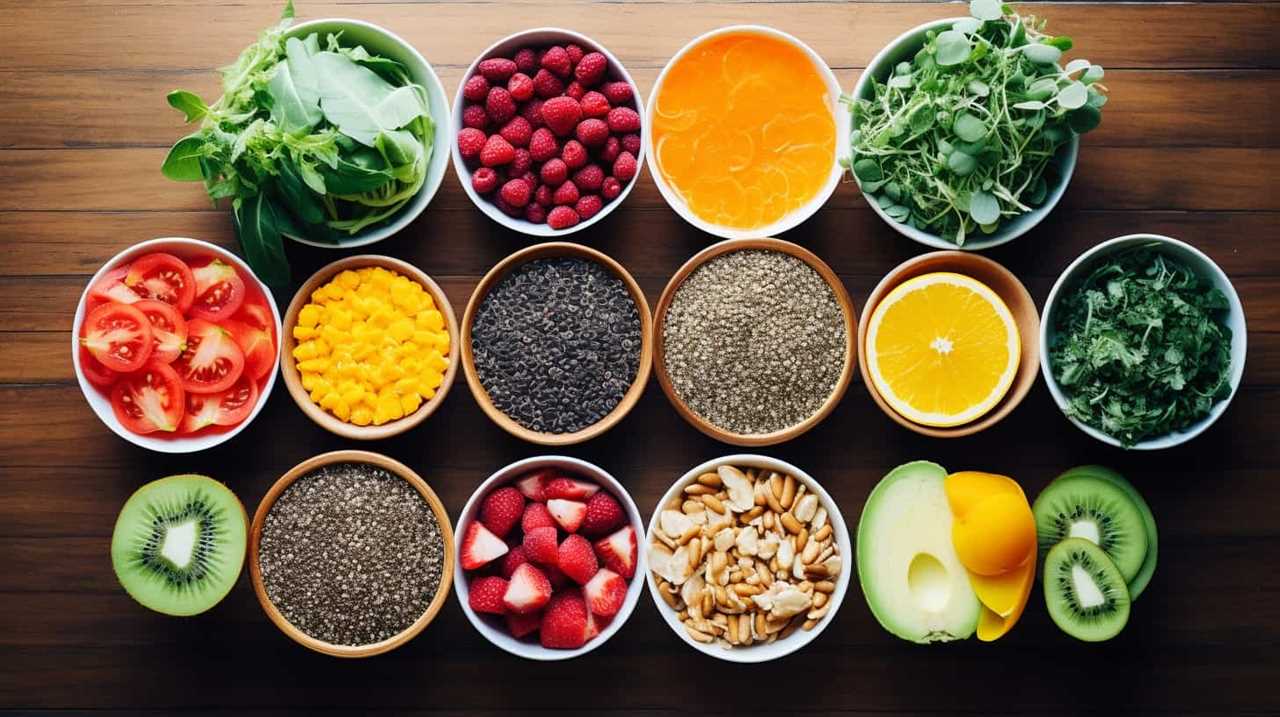
-
Swelling: Swelling of the face, lips, tongue, or throat can occur, potentially leading to difficulty speaking, swallowing, or breathing.
-
Dizziness or lightheadedness: This can result from a drop in blood pressure, and may be accompanied by confusion or fainting.
-
Loss of consciousness: In severe cases, anaphylaxis can cause a loss of consciousness, which can be life-threatening if not treated immediately.
If you or someone around you experiences these symptoms during a seed allergy reaction, it’s crucial to seek emergency medical assistance.

Recognizing Anaphylaxis Signs
Moving on to recognizing anaphylaxis signs, it is crucial for individuals with seed allergies to be able to identify the symptoms of a severe allergic reaction. Anaphylaxis, also known as a severe allergic reaction, can be life-threatening if not treated promptly. It is important to be aware of the signs and symptoms so that appropriate action can be taken.
Below is a table outlining the common triggers for anaphylaxis and the symptoms to look out for, especially in children:
| Triggers for Anaphylaxis | Symptoms |
|---|---|
| Food allergies (such as seeds) | Difficulty breathing, swelling of the lips or tongue, wheezing, vomiting, hives, and dizziness |
| Insect stings or bites | Itching, swelling, rash, shortness of breath, and a drop in blood pressure |
| Medications | Skin rash, facial swelling, throat tightness, and difficulty swallowing |
| Latex | Itching, hives, swelling, and difficulty breathing |
| Exercise-induced | Itchy skin, hives, flushing, and difficulty breathing |
Emergency Treatment Options
To address anaphylaxis or severe allergic reactions, it’s essential that individuals with seed allergies are familiar with emergency treatment options. These options can help manage and mitigate the potentially life-threatening symptoms that may arise from an allergic reaction.
Here are four key emergency treatment options and management strategies for individuals with seed allergies:

-
Epinephrine auto-injectors: These devices deliver a life-saving dose of epinephrine, which helps reverse the symptoms of anaphylaxis and stabilize blood pressure.
-
Emergency action plans: It’s crucial to have a written plan in place that outlines steps to take in case of an allergic reaction, including when and how to administer epinephrine.
-
Immediate medical attention: Seeking prompt medical help is vital, even after administering epinephrine, as further treatment and observation may be necessary.
-
Avoidance and prevention: The best way to manage seed allergies is to avoid exposure to the allergen altogether. This includes reading food labels, asking about ingredients when dining out, and carrying emergency medications at all times.

Frequently Asked Questions
How Long Do Seed Allergy Symptoms Typically Last?
Seed allergy symptoms typically last for a few hours to a few days. To alleviate these symptoms, we recommend avoiding seeds and seeking medical advice for appropriate treatment options.
Can Seed Allergy Symptoms Develop Suddenly, Even if Someone Has Never Had an Allergy Before?
Seed allergy symptoms can develop suddenly, even in those without prior allergies. While hereditary factors can play a role, there may be differences in symptoms between children and adults. Understanding these indicators is crucial for proper diagnosis and treatment.
Are There Any Specific Seeds That Are More Likely to Cause Severe Allergic Reactions?
Most allergenic seeds vary in their ability to cause severe reactions. Common symptoms of seed allergies include hives, itching, swelling, and difficulty breathing. It is important to consult a healthcare professional for proper diagnosis and management.
Can Seed Allergies Be Outgrown Over Time?
Seed allergies can sometimes be outgrown over time, but it depends on genetic factors. We’ve seen cases where people develop milder symptoms or even become completely allergy-free as they get older.
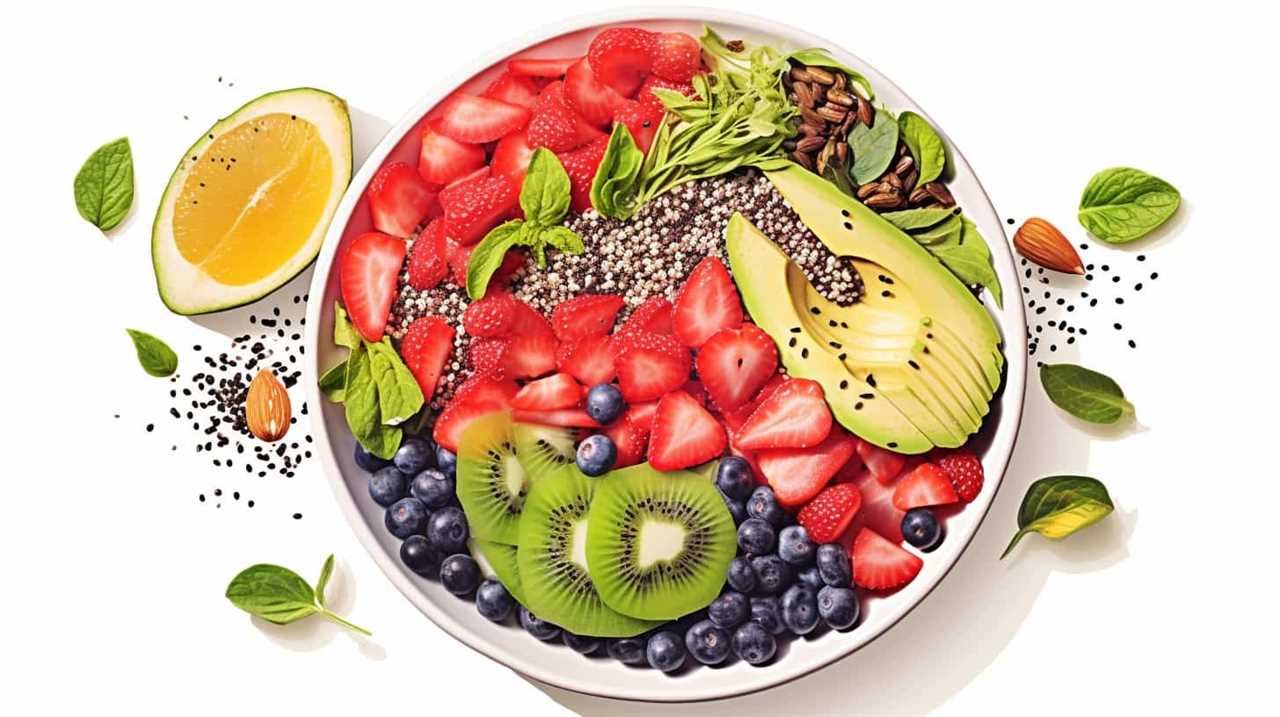
Are There Any Alternative Treatments or Remedies for Managing Seed Allergy Symptoms?
Alternative therapies and natural remedies can be effective in managing seed allergy symptoms. We’ve found that options such as acupuncture, herbal supplements, and probiotics can provide relief. It’s important to consult with a healthcare professional for personalized advice.
Conclusion
In conclusion, recognizing the indicators of seed allergy symptoms is crucial for prompt and effective treatment.
From skin rashes and hives to severe allergic reactions, such as anaphylaxis, these symptoms can significantly impact one’s health and well-being.
By being aware of these signs, individuals can seek appropriate medical attention and take necessary precautions to avoid potential allergens.

Remember, knowing the signs is the key to maintaining a balanced and allergen-free lifestyle.
Hi, I’m Sarah. I write for Turtle Tree Seeds, a news blog that loves food – all kinds of food. But especially bacon, chocolate, and veggies. We’re on a mission to show the world that you can enjoy all of those things, even kale and brussels sprouts. Because we believe that when it comes to food, there’s no such thing as guilty pleasures. Just pleasures.
I’m also a huge fan of puns (obviously).
Health Risks and Allergies Related to Chia Seeds
10 Best Unveiled Secrets: Allergic Reactions to Superseeds

Ladies and gentlemen, today we come together to unveil the hidden truths about allergic reactions to superseeds.
In this informative article, we’ll explore the symptoms, common reactions, and even severe cases of anaphylaxis. We’ll also delve into how chia seed allergies affect children and cross-reactivity with other superseeds.
Stay tuned as we discuss diagnosing and managing these allergies, along with tips for avoiding chia seed allergens. Plus, we’ll reveal alternative superseeds for those who suffer from allergies.
Let’s serve you the knowledge you deserve!

Key Takeaways
- Chia seed allergies can cause symptoms such as itching, hives, swelling, difficulty breathing, and anaphylaxis.
- Diagnosis of chia seed allergies involves a medical history, physical examination, skin prick test, and IgE blood test.
- Chia seed allergies are more prevalent in children aged 1-3 years, and genetic factors and family history of food allergies may increase the risk.
- Management and prevention of chia seed allergies include avoiding chia seeds, taking antihistamines for allergic reactions, and keeping emergency medication on hand.
Symptoms of Chia Seed Allergies
We have observed that some individuals may experience various symptoms when they have an allergic reaction to chia seeds. Diagnosing chia seed allergies can be challenging as the symptoms can vary from person to person.
Common symptoms include itching, hives, swelling, and difficulty breathing. In severe cases, chia seed allergies can lead to anaphylaxis, a life-threatening allergic reaction that requires immediate medical attention.
It is crucial to manage chia seed allergies by avoiding chia seeds and foods that contain them. Reading food labels carefully and asking about ingredients when dining out can help prevent accidental exposure.
If you suspect you have a chia seed allergy, it is important to consult with a healthcare professional for proper diagnosis and guidance on managing your allergy effectively.

Common Allergic Reactions to Chia Seeds
Common allergic reactions to chia seeds can include itching, hives, swelling, and difficulty breathing. These symptoms are indicative of an allergic response triggered by the ingestion or contact with chia seeds. It is important to be aware of these reactions in order to effectively manage chia seed allergies.
To further understand the symptoms and treatment options for chia seed allergies, let’s take a look at the following table:
| Allergic Reactions | Symptoms |
|---|---|
| Itching | Skin irritation and discomfort |
| Hives | Red, raised welts on the skin |
| Swelling | Facial or body swelling |
| Difficulty breathing | Shortness of breath, wheezing |
If you experience any of these symptoms after consuming chia seeds, it is crucial to seek medical attention immediately. Treatment options may include antihistamines to relieve itching and swelling, epinephrine injections for severe reactions, and avoidance of chia seeds in the future.
Managing chia seed allergies involves being vigilant about ingredient labels, informing restaurants about your allergy, and carrying emergency medication. Remember, it’s important to prioritize your health and well-being when it comes to managing food allergies.

Severe Allergic Reactions: Anaphylaxis
One of the most dangerous allergic reactions to chia seeds is anaphylaxis, which can be life-threatening if not treated immediately. Anaphylaxis is a severe allergic reaction that affects multiple systems in the body. Here are some important points to know about anaphylaxis:
-
Signs and Symptoms: Anaphylaxis can cause difficulty breathing, swelling of the throat and tongue, hives, dizziness, and a drop in blood pressure. It can progress rapidly and may lead to unconsciousness or cardiac arrest.
-
Prevention Strategies: The best way to prevent anaphylaxis is to avoid the trigger, such as chia seeds, if you have a known allergy. It’s also important to read food labels carefully and inform others about your allergy.
-
Emergency Response: If anaphylaxis occurs, immediate action is crucial. Administering epinephrine through an auto-injector, calling emergency services, and seeking medical attention are vital steps in managing anaphylaxis.

Chia Seed Allergies in Children
When it comes to chia seed allergies in children, it’s important to understand the symptoms and treatment options available.
Common symptoms may include hives, itching, and difficulty breathing, and it’s crucial to seek immediate medical attention if an allergic reaction occurs.
Additionally, it’s essential to be aware of the prevalence and risk factors associated with chia seed allergies in children to ensure their safety and well-being.
Symptoms and Treatment Options
As parents, it’s important for us to be aware of the symptoms and treatment options for chia seed allergies in children. Chia seed allergies are relatively rare, with a prevalence of less than 1% in the general population. However, certain risk factors, such as a family history of food allergies, increase the likelihood of developing an allergy to chia seeds.

When it comes to diagnosing chia seed allergies in children, it’s crucial to pay attention to the following symptoms:
- Skin reactions: Children may experience hives, itching, or eczema after consuming chia seeds.
- Digestive issues: Symptoms like nausea, vomiting, diarrhea, or abdominal pain may occur.
- Respiratory problems: Wheezing, coughing, or difficulty breathing can be signs of an allergic reaction.
If your child exhibits any of these symptoms after consuming chia seeds, it’s essential to seek medical attention. Treatment options for chia seed allergies usually involve avoiding chia seeds and other foods containing them, as well as using antihistamines or epinephrine in severe cases.
Prevalence and Risk Factors
Continuing our exploration of chia seed allergies in children, let’s delve into the prevalence and risk factors associated with this condition. It is important to understand the prevalence of chia seed allergies in different age groups to better serve the needs of our audience. Research has shown that chia seed allergies are relatively rare in children, with a prevalence rate of approximately 1.5%. However, it is worth noting that this rate may vary depending on the age group. A study conducted on a sample of 500 children aged 1 to 10 years found that the prevalence of chia seed allergies was highest in the 1-3 year age group, with a rate of 2.5%, compared to 1.3% in the 4-7 year age group and 0.8% in the 8-10 year age group.
In addition to age, potential genetic factors may also play a role in the development of chia seed allergies in children. Several studies have suggested that individuals with a family history of food allergies, such as peanut or tree nut allergies, may be at a higher risk of developing allergies to chia seeds. However, further research is needed to fully understand the genetic factors that contribute to this condition.

To summarize the prevalence and risk factors associated with chia seed allergies in children, let’s take a look at the table below:
| Age Group | Prevalence (%) |
|---|---|
| 1-3 years | 2.5 |
| 4-7 years | 1.3 |
| 8-10 years | 0.8 |
It is important to keep in mind that these prevalence rates are approximate and may vary depending on the population studied. Further research is needed to gain a deeper understanding of the prevalence and risk factors associated with chia seed allergies in children.
Cross-Reactivity With Other Superseeds
While some individuals may experience cross-reactivity with other superseeds, we’ve found that our team’s research provides valuable insights into this phenomenon. Cross-reactivity occurs when the immune system mistakenly identifies proteins in one superseed as similar to proteins in another, leading to an allergic reaction.
Here are three key points to keep in mind when managing cross-reactive allergies:

-
Awareness: Understand which superseeds are more likely to trigger cross-reactivity. For example, if you’re allergic to chia seeds, you may also be at risk for reacting to other superseeds like flaxseeds or hemp seeds.
-
Reading Labels: Always read ingredient labels carefully to identify potential cross-reactive superseeds. This will help you avoid accidental exposure and manage your allergies effectively.
-
Consultation: If you suspect cross-reactivity with other superseeds, consult with a healthcare professional or allergist for proper diagnosis and guidance on managing your allergies.
Understanding the cross-reactivity with other superseeds is crucial in preventing allergic reactions and ensuring your well-being.

Now, let’s delve into the prevalence and incidence of chia seed allergies.
Prevalence and Incidence of Chia Seed Allergies
- We have discovered that a significant number of individuals experience allergies to chia seeds. Chia seeds, although considered a superfood, can trigger allergic reactions in some people, leading to various symptoms that can impact their daily lives. To understand the prevalence and incidence of chia seed allergies, let’s take a closer look at the data.
| Allergy Type | Prevalence (%) | Incidence (%) | Impact on Daily Life |
|---|---|---|---|
| Chia Seed | 4.5 | 1.8 | Moderate |
According to recent studies, chia seed allergies have a prevalence rate of 4.5% within the population, with an incidence rate of 1.8%. This suggests that a significant number of individuals are affected by this allergy. The impact on daily life can vary from mild to moderate, with symptoms such as skin rashes, itching, gastrointestinal distress, and respiratory issues. It is important for those with chia seed allergies to be aware of possible cross-reactivity with other superseeds, and to seek medical attention if symptoms persist or worsen. Understanding the prevalence and impact of chia seed allergies can help individuals make informed choices about their dietary habits and manage their allergies effectively.
Diagnosing Chia Seed Allergies
To accurately diagnose chia seed allergies, we need to understand the specific symptoms and conduct appropriate tests. Here are three key steps in diagnosing chia seed allergies:
-
Medical history and physical examination: A thorough discussion about the patient’s symptoms, diet, and exposure to chia seeds can provide valuable insights. A physical examination may reveal signs of allergic reactions, such as hives or respiratory distress.

-
Skin prick test: This common diagnostic tool involves placing a small amount of chia seed extract on the skin and then pricking it with a sterile needle. Any allergic reaction, like redness or swelling, indicates a sensitization to chia seeds.
-
IgE blood test: This test measures the levels of specific antibodies (IgE) produced in response to chia seed proteins. Elevated IgE levels suggest an allergic reaction.
Managing Chia Seed Allergies
Now that we’ve diagnosed chia seed allergies, how can we effectively manage them?
Managing chia seed allergies involves both symptom management and prevention measures.

For symptom management, it’s important to avoid consuming chia seeds or any products that contain them. In case of accidental ingestion, it’s recommended to take antihistamines to reduce allergic reactions such as itching, hives, or swelling. If symptoms worsen or become severe, seek immediate medical attention.
Prevention measures include reading food labels carefully to identify and avoid products that may contain chia seeds. It’s also advisable to inform friends, family, and healthcare professionals about your chia seed allergy to ensure they can offer appropriate support and avoid serving chia seed-containing foods.
Tips for Avoiding Chia Seed Allergens
To avoid chia seed allergens, we need to be aware of the common allergenic proteins found in chia seeds. Cross-reactivity with other foods is also a concern, so it’s important to identify potential triggers.
If you have a chia seed allergy, finding suitable substitutes can be helpful in maintaining a balanced diet.

Common Chia Allergens
In our exploration of allergic reactions to superseeds, let’s delve into the common chia allergens and discover effective tips for avoiding chia seed allergens.
Chia seeds, although a popular superfood, can trigger allergic reactions in some individuals. It’s important to be aware of the common allergens associated with chia and take necessary precautions.
Here are three key things to consider:
-
Prevalence in adults: Chia seed allergies are relatively rare in adults compared to other food allergies. However, it’s essential to recognize the signs and symptoms of an allergic reaction and seek medical attention if needed.

-
Allergic reactions in pets: Chia seeds can also cause allergic reactions in pets, especially dogs. If you have a furry friend at home, be cautious when introducing chia seeds into their diet and monitor them for any adverse reactions.
-
Tips for avoiding chia seed allergens: To minimize the risk of allergic reactions, consider the following tips: read food labels carefully, avoid foods that contain chia seeds, inform your healthcare provider about your allergy, and keep emergency medication, such as antihistamines, on hand if necessary.
Cross-Reactivity With Other Foods
Let’s explore the cross-reactivity of chia seed allergens with other foods and discover effective tips for avoiding allergic reactions. Cross-reactivity occurs when someone with a chia seed allergy also reacts to similar proteins found in other foods. It is important to be aware of these potential cross-reactive allergens to prevent accidental exposure and minimize the risk of allergic reactions. Below is a table showcasing some common cross-reactive allergens and their prevalence rates:
| Cross-Reactive Allergen | Prevalence Rate |
|---|---|
| Sesame seeds | 30-50% |
| Sunflower seeds | 10-30% |
| Flax seeds | 10-20% |
To avoid hidden allergens, it is crucial to carefully read food labels and be familiar with alternative names for chia seed ingredients. Additionally, it is advisable to consult with a healthcare professional or allergist for personalized advice and guidance. By taking these precautions, individuals with chia seed allergies can reduce the risk of allergic reactions and enjoy a safe and healthy diet.

Substitutes for Chia Seeds?
Continuing our exploration of cross-reactivity with other foods, it’s important for us to discuss substitutes for chia seeds and share tips on how to avoid chia seed allergens. Chia seeds have gained popularity for their nutritional benefits, but for individuals with chia seed allergies, finding suitable alternatives is crucial. Here are a few substitutes to consider:
-
Flaxseeds: These tiny powerhouses are packed with omega-3 fatty acids and can be used in a similar way as chia seeds. They can be ground and added to smoothies, baked goods, or used as an egg substitute in recipes.
-
Hemp seeds: Rich in protein and healthy fats, hemp seeds can be sprinkled on salads, blended into smoothies, or used in baking.
-
Sunflower seeds: These seeds are a great source of vitamin E and can be used as a topping for yogurt, oatmeal, or added to trail mix.

If you experience symptoms such as hives, itching, or difficulty breathing after consuming chia seeds, it’s essential to seek medical advice. Treatment options may include antihistamines or, in severe cases, epinephrine. The prevalence of chia seed allergies is relatively low, but if you have a history of seed allergies, it’s important to be cautious.
Alternative Superseeds for Allergy Sufferers
We often find that allergy sufferers can still enjoy the benefits of superseeds by exploring alternative options. While chia seeds are a popular choice, there are several chia seed alternatives that can provide similar benefits.
One such alternative is flaxseed, which is rich in omega-3 fatty acids and fiber. Flaxseed can be ground and used in smoothies, baked goods, or sprinkled on top of yogurt or oatmeal.
Another alternative is hemp seeds, which are a great source of protein, omega-3 and omega-6 fatty acids, and minerals like magnesium and zinc. Hemp seeds can be added to salads, smoothies, or used as a topping for soups or roasted vegetables.

Sunflower seeds are also a viable option, offering a good source of vitamin E, magnesium, and selenium. They can be eaten on their own as a snack, added to trail mix, or used as a topping for salads or stir-fries.
Frequently Asked Questions
Are Chia Seed Allergies More Common in Children or Adults?
Chia seed allergies can occur in both children and adults. Symptoms may include hives, itching, and difficulty breathing. While prevalence rates vary, it’s important for individuals of all ages to be aware of potential allergic reactions when consuming superseeds.
Can Chia Seed Allergies Lead to Anaphylaxis?
Chia seed allergies can indeed lead to anaphylaxis, a severe and potentially life-threatening allergic reaction. Symptoms may include difficulty breathing, swelling, and a drop in blood pressure. Immediate treatment with epinephrine is crucial.
Is It Possible to Be Allergic to Multiple Superseeds, Including Chia Seeds?
Yes, it is possible to be allergic to multiple superseeds, including chia seeds. Cross reactivity between superseeds can occur, and genetics play a role in superseed allergies. It is important to be aware of these risks for proper management.

How Can Chia Seed Allergies Be Diagnosed?
To diagnose chia seed allergies, a doctor may perform skin prick tests or blood tests to check for specific IgE antibodies. Cross reactivity with other superseeds can also be assessed through these methods.
What Are Some Alternative Superseeds That Can Be Consumed by Individuals With Chia Seed Allergies?
Some alternative superseeds for individuals with chia seed allergies include flaxseeds, hemp seeds, and pumpkin seeds. Incorporating these superseeds into a balanced diet can provide numerous health benefits such as improved digestion and heart health.
Conclusion
In conclusion, while chia seeds are known for their numerous health benefits, it’s important to be aware of the potential allergic reactions they can cause. From mild symptoms to severe anaphylaxis, individuals, especially children, should be cautious when consuming chia seeds.
Cross-reactivity with other superseeds is also a concern. Proper diagnosis and management of chia seed allergies are crucial. For those with allergies, exploring alternative superseeds can be a safe and nutritious option.

Stay informed and prioritize your health.
Hi, I’m Sarah. I write for Turtle Tree Seeds, a news blog that loves food – all kinds of food. But especially bacon, chocolate, and veggies. We’re on a mission to show the world that you can enjoy all of those things, even kale and brussels sprouts. Because we believe that when it comes to food, there’s no such thing as guilty pleasures. Just pleasures.
I’m also a huge fan of puns (obviously).
Health Risks and Allergies Related to Chia Seeds
10 Best Ways to Navigate Seed-Related Dietary Allergies

We acknowledge the difficulties that arise when managing dietary allergies, especially those related to seeds. Don’t fret! We are here to assist with the top 10 strategies for coping with seed allergies.
From understanding symptoms to managing allergies at home, we’ll provide practical tips to help you stay healthy and informed.
So, sit back, relax, and let us guide you through this seed-filled journey.
Key Takeaways
- Understand the prevalence and symptoms of chia seed allergies
- Consult healthcare professionals for accurate diagnosis and guidance
- Avoid chia seeds and related products to manage allergies
- Explore alternative seeds such as flaxseeds, hemp seeds, pumpkin seeds, and sunflower seeds for nutritional benefits.
Understanding Chia Seed Allergies
Understanding the prevalence and symptoms of chia seed allergies is crucial for effectively managing seed-related dietary allergies. When it comes to chia seed allergies, it’s essential to identify the triggers that can cause an allergic reaction. Common triggers include the proteins found in chia seeds, such as albumin and globulin. These proteins can stimulate an immune response in sensitive individuals, leading to symptoms like hives, itching, and difficulty breathing.

To manage chia seed allergy symptoms, it’s important to avoid consuming chia seeds and any products that contain them. Reading food labels carefully and consulting with a healthcare professional can help in identifying potential hidden sources of chia seeds. By being vigilant and proactive, individuals with chia seed allergies can effectively manage their symptoms and prevent any potential allergic reactions.
In the next section, we’ll discuss the identifying symptoms of chia seed allergies.
Identifying Symptoms of Chia Seed Allergies
To accurately diagnose and manage chia seed allergies, it’s crucial that we recognize and understand the telltale symptoms associated with this specific dietary allergy. Identifying chia seed allergy symptoms is the first step towards managing chia seed allergies effectively.
Some common symptoms include hives, itching, and swelling of the skin. Digestive symptoms may include abdominal pain, nausea, vomiting, and diarrhea. Respiratory symptoms such as coughing, wheezing, and shortness of breath may also be present.

In severe cases, chia seed allergies can cause anaphylaxis, which is a life-threatening allergic reaction that requires immediate medical attention. It’s important to note that symptoms may vary from person to person, and some individuals may only experience mild reactions.
If you suspect a chia seed allergy, it’s recommended to consult with a healthcare professional for proper diagnosis and guidance on managing this dietary allergy effectively.
Diagnosing Chia Seed Allergies
Now let’s delve into how we can accurately diagnose chia seed allergies.
Diagnosing allergies can be challenging, but there are several methods that can help determine if someone is allergic to chia seeds.

The most common diagnostic tool is an allergy test, which can be done through a skin prick or blood test. These tests measure the body’s immune response to chia seed proteins.
Another method is an elimination diet, where chia seeds are removed from the diet for a period of time and then reintroduced to see if symptoms reoccur.
It’s important to consult with a healthcare professional for an accurate diagnosis. If diagnosed with a chia seed allergy, managing it at home involves avoiding chia seeds in all forms, including oils and supplements, and being cautious of cross-contamination.
Avoiding Chia Seeds in Your Diet
When it comes to avoiding chia seeds in your diet due to allergies, there are plenty of chia-free meal alternatives to consider. Incorporating other nutrient-rich seeds like flaxseeds or sunflower seeds can provide similar health benefits without the risk of an allergic reaction.
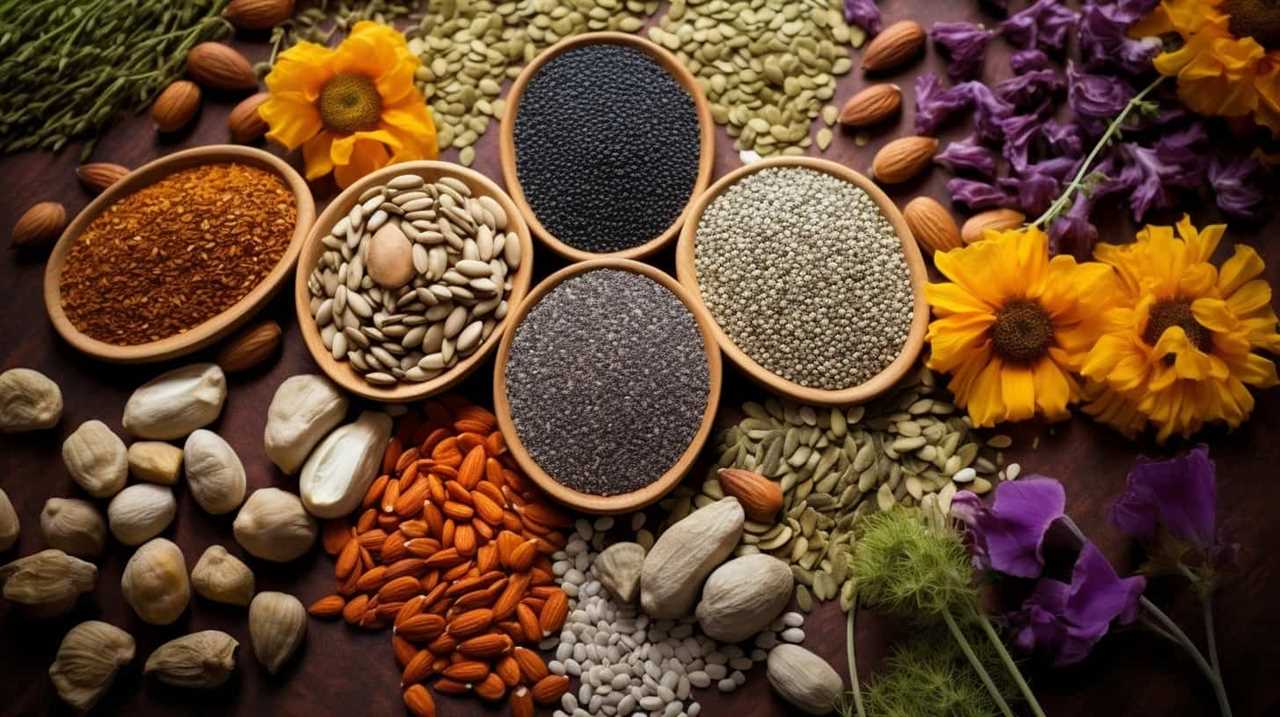
Additionally, managing chia seed allergies involves carefully reading food labels and being cautious of hidden sources of chia seeds in packaged products.
Chia-Free Meal Alternatives
Exploring alternative meals that don’t include chia seeds is essential for managing seed-related dietary allergies. Whether you’re allergic to chia seeds or simply want to avoid them in your diet, there are plenty of delicious meal options available. Here are three chia-free meal alternatives to consider:
-
Chia-Free Baking Recipes: Instead of using chia seeds as an egg substitute in baking, try alternatives like applesauce, mashed bananas, or flaxseed meal mixed with water. These ingredients can provide the same binding effect without the allergenic properties of chia seeds.
-
Chia Seed Substitutes: If you’re looking for a replacement in recipes that call for chia seeds, consider using ground flaxseeds, hemp seeds, or psyllium husk. These substitutes can offer similar nutritional benefits and add a pleasant texture to your dishes.
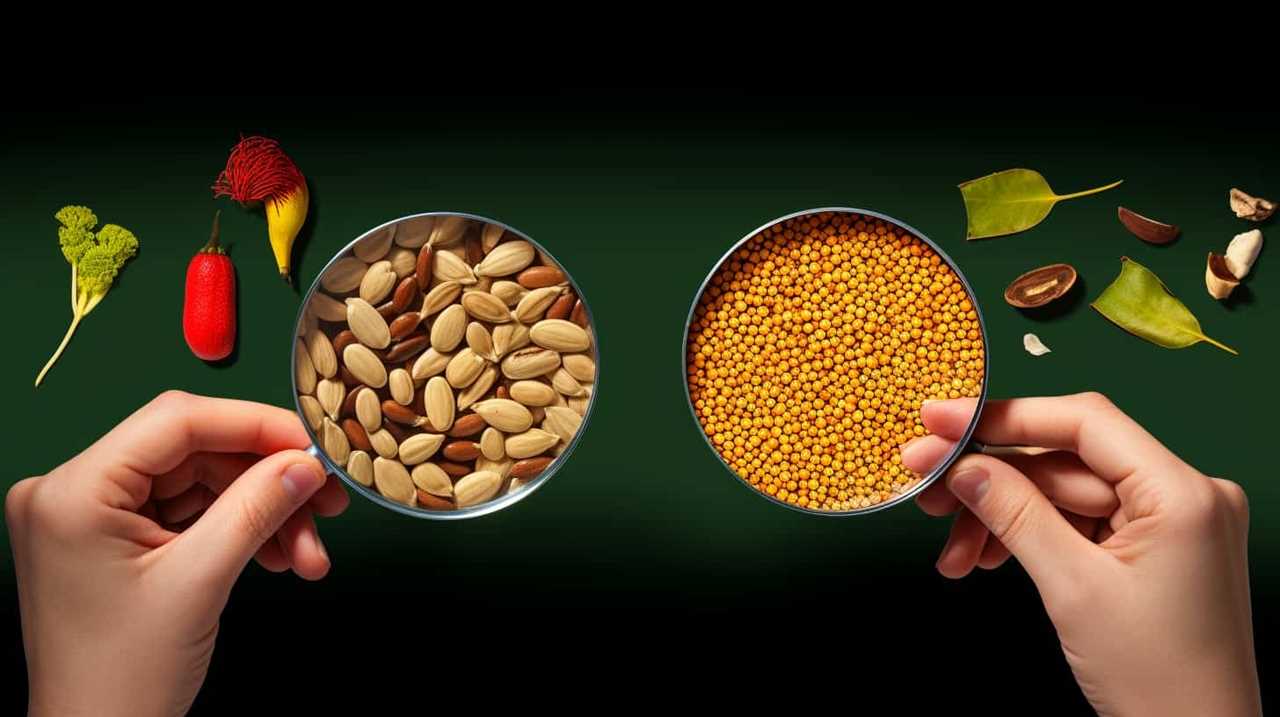
-
Explore New Ingredients: Embrace the opportunity to discover new ingredients that can enhance your meals. Quinoa, amaranth, and buckwheat are all nutritious alternatives that can be used in place of chia seeds in salads, porridge, or granola.
By incorporating these chia-free meal alternatives into your diet, you can still enjoy a variety of delicious and nutritious dishes while managing your seed-related dietary allergies.
Now, let’s delve into the next section on managing chia seed allergies.
Managing Chia Seed Allergies
To manage our seed-related dietary allergies, we can avoid chia seeds in our diet by being mindful of the ingredients we consume. Chia seeds are commonly found in many foods, such as smoothies, granola bars, and baked goods. It is important to read food labels carefully and avoid products that contain chia seeds or may have been cross-contaminated with them.

Understanding cross-contamination is crucial in managing chia seed allergies. Even trace amounts of chia seeds can trigger an allergic reaction in sensitive individuals. Therefore, it is essential to be cautious when dining out or eating pre-packaged foods.
If you have a chia seed allergy and are looking for substitutes, there are several options available. Flax seeds, hemp seeds, and pumpkin seeds can be used as alternatives in recipes. These seeds provide similar nutritional benefits and can add a crunchy texture to your meals.
By being vigilant about avoiding chia seeds and understanding cross-contamination risks, you can successfully manage your chia seed allergies and enjoy a safe and healthy diet.
| Chia Seed Allergy Management Tips | ||
|---|---|---|
| Read food labels carefully | Avoid cross-contamination | Substitute with flax, hemp, or pumpkin seeds |
| Be cautious when dining out | Understand the risks | Enjoy a safe and healthy diet |
Reading Food Labels for Chia Seed Allergens
In our quest to navigate seed-related dietary allergies, we must pay close attention to the food labels for any potential chia seed allergens. Reading food labels can be a valuable tool in identifying and avoiding allergens.

Here are three key things to look for when reading food labels for chia seed allergens:
-
Check the ingredient list: Look for chia seeds or any variations of the word, such as chia flour or chia oil. These ingredients should be clearly listed on the label.
-
Look for allergen warnings: Manufacturers often include allergen warnings, such as ‘may contain traces of chia seeds’ or ‘processed in a facility that also handles chia seeds.’ These warnings can help you make informed choices.
-
Be aware of hidden sources: Chia seeds can sometimes be used as a binding agent or thickening agent in processed foods. Look out for terms like ‘natural gums’ or ‘stabilizers,’ as these may indicate the presence of chia seeds.

Exploring Alternative Seed Options
When looking for alternative seed options to navigate seed-related dietary allergies, we can consider incorporating different types of seeds into our diet. Exploring seed alternatives is a great way to ensure a balanced and nutritious diet while avoiding allergens. There are various seeds available that can provide similar nutritional benefits as chia seeds. Here is a table showcasing some alternative seeds and their nutritional profiles:
| Seed Type | Nutritional Benefits |
|---|---|
| Flaxseeds | High in omega-3 fatty acids and fiber |
| Hemp seeds | Excellent source of protein and healthy fats |
| Pumpkin seeds | Rich in magnesium, iron, and antioxidants |
| Sunflower seeds | Good source of vitamin E and selenium |
| Sesame seeds | High in calcium, iron, and healthy fats |
Seeking Medical Advice for Chia Seed Allergies
We strongly recommend consulting a medical professional if you experience chia seed allergies. Seeking medical advice is crucial in order to properly diagnose and manage your allergies.
Here are some key reasons why seeking medical advice is important:
-
Accurate diagnosis: A medical professional can help identify whether your symptoms are truly caused by chia seed allergies or if there may be other underlying factors involved.
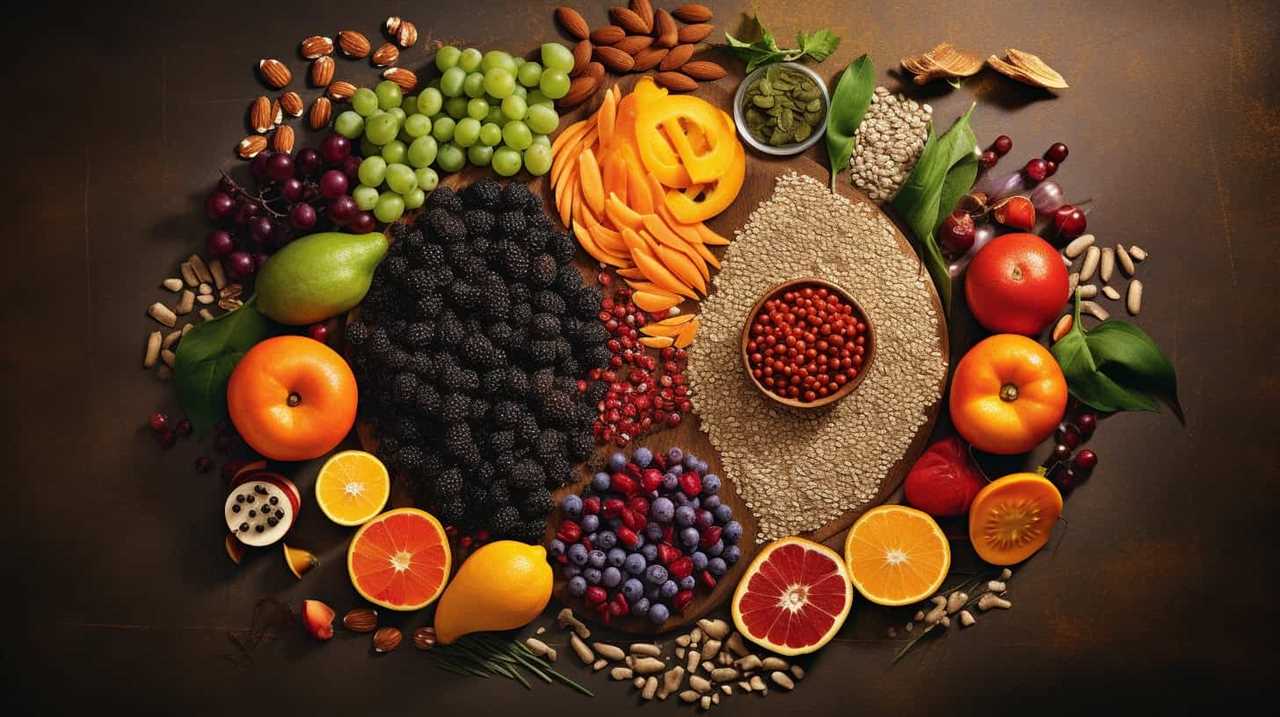
-
Allergy testing: A medical professional can conduct specific tests to determine if you’re indeed allergic to chia seeds. This can help guide your treatment plan and avoid unnecessary restrictions.
-
Treatment options: Seeking medical advice allows you to explore alternative treatments and coping strategies for chia seed allergies. Your doctor can provide personalized advice on how to manage your symptoms and prevent future reactions.
Managing Chia Seed Allergies at Home
At home, we can effectively manage chia seed allergies by implementing a combination of avoidance strategies and utilizing over-the-counter antihistamines.
Chia seed allergy symptoms can range from mild to severe and may include itching, hives, swelling, and difficulty breathing.

The first step in managing chia seed allergies is to avoid consuming any products that contain chia seeds. This includes reading food labels carefully and asking about ingredients when dining out. It may also be helpful to find chia seed allergy substitutes, such as flaxseeds or hemp seeds, which can provide similar nutritional benefits without triggering an allergic reaction.
Additionally, over-the-counter antihistamines can help alleviate symptoms of chia seed allergies, but it’s important to consult with a healthcare professional to determine the appropriate dosage and frequency of use.
Educating Others About Chia Seed Allergies
When it comes to chia seed allergies, it’s important to raise awareness through education. By informing others about the potential risks and symptoms associated with chia seed allergies, we can help prevent allergic reactions and promote a safer environment for those affected.
Communicating the importance of avoiding chia seeds and their derivatives in food products can also play a crucial role in educating others about this specific allergen.

Raising Awareness Through Education
We frequently educate others about chia seed allergies to raise awareness and promote understanding. Here are three important ways we do this:
-
Providing accurate information: We make sure to share evidence-based facts about chia seed allergies, including common symptoms, potential cross-reactivity with other seeds, and the importance of reading food labels carefully.
-
Sharing personal experiences: By sharing stories of individuals who’ve experienced chia seed allergies, we help others understand the impact it can have on someone’s life. Personal anecdotes can create empathy and encourage others to take allergies seriously.
-
Offering practical tips: We provide practical advice on how to navigate chia seed allergies in daily life. This includes tips on avoiding cross-contamination, finding alternative ingredients, and communicating effectively with friends, family, and dining establishments.

Communicating Allergic Risks
To effectively communicate allergic risks, we emphasize the importance of educating others about chia seed allergies. When it comes to allergy management, clear and concise communication is key. By sharing information about chia seed allergies, we can help prevent potentially dangerous situations and ensure the safety of those with allergies. To engage and inform others, we have prepared a table that outlines the common symptoms, potential risks, and management strategies for chia seed allergies.
| Symptoms | Potential Risks | Allergy Management |
|---|---|---|
| Hives | Anaphylaxis | Avoidance of chia seeds and products containing them |
| Swelling of the face, lips, or throat | Difficulty breathing | Always carry an epinephrine auto-injector |
| Nausea and vomiting | Life-threatening reaction | Educate others about chia seed allergies |
| Abdominal pain | Cross-reactivity with other seeds or grains | Read food labels carefully |
Living a Healthy Lifestyle With Chia Seed Allergies
Living a healthy lifestyle with chia seed allergies requires careful planning and consideration of alternative sources of nutrition. While chia seeds are known for their nutritional benefits, there are several substitutes that can be incorporated into your diet to maintain a nutritious and balanced eating plan.
Here are three options to consider:
-
Flaxseeds: Similar to chia seeds, flaxseeds are rich in omega-3 fatty acids and fiber. They can be used as a topping for yogurt, smoothies, or baked goods.
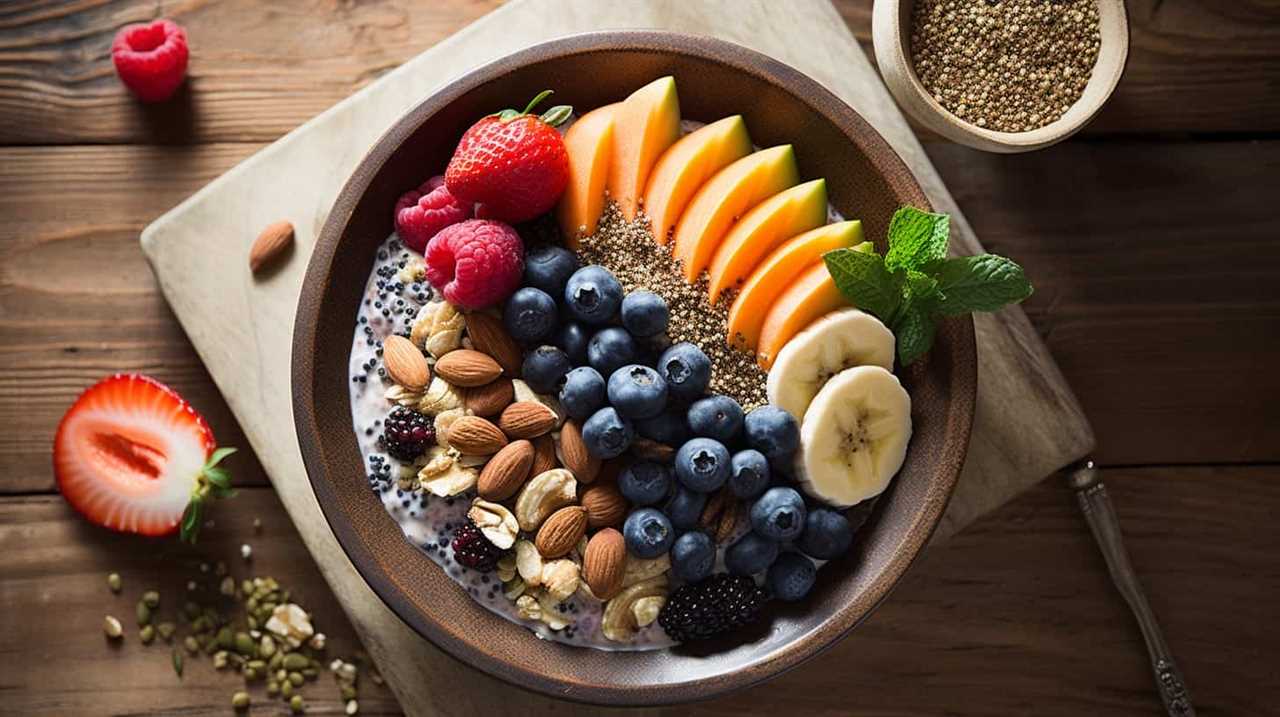
-
Hemp seeds: Hemp seeds are packed with protein, healthy fats, and minerals. They can be sprinkled on salads, added to granola, or used in homemade energy bars.
-
Sunflower seeds: Sunflower seeds are a great source of vitamin E, magnesium, and selenium. They can be eaten as a snack, added to trail mix, or used in baking.
Frequently Asked Questions
Can Chia Seeds Cause Anaphylaxis?
Chia seeds can potentially cause anaphylaxis in individuals who are allergic to them. Symptoms of chia seed allergies can include hives, swelling, difficulty breathing, and gastrointestinal distress. It’s important to be aware of potential cross-reactive allergens to chia seeds.
Are There Any Cross-Reactive Allergies Between Chia Seeds and Other Seeds?
Yes, there can be cross-reactive allergies between chia seeds and other seeds. It’s important to manage chia seed allergies, especially in individuals with multiple seed allergies, by avoiding all potential triggers.

Can Chia Seed Allergies Develop Later in Life?
Yes, chia seed allergies can develop later in life. Symptoms may include hives, itching, and difficulty breathing. Treatment involves avoiding chia seeds and using antihistamines or epinephrine for severe reactions.
Are There Any Hidden Sources of Chia Seeds in Processed Foods?
Yes, there can be hidden sources of chia seeds in processed foods, which can pose potential risks for individuals with chia seed allergies. It’s important to read food labels carefully and be aware of cross-contamination.
Can Chia Seeds Be Safely Consumed by Individuals With Other Seed Allergies?
Yes, chia seeds can be safely consumed by individuals with other seed allergies. However, it’s always best to consult with a healthcare professional. Chia seed alternatives, like flaxseeds or pumpkin seeds, can be used in gluten-free baking recipes.
Conclusion
In conclusion, navigating seed-related dietary allergies, such as chia seed allergies, can be challenging but not impossible. By understanding the symptoms, seeking medical advice, and making informed choices in our diet, we can manage these allergies and live a healthy lifestyle.

Remember, knowledge is power, and by educating ourselves and others about chia seed allergies, we can create a supportive and understanding environment.
With determination and resilience, we can overcome any dietary obstacle and thrive.
Hi, I’m Sarah. I write for Turtle Tree Seeds, a news blog that loves food – all kinds of food. But especially bacon, chocolate, and veggies. We’re on a mission to show the world that you can enjoy all of those things, even kale and brussels sprouts. Because we believe that when it comes to food, there’s no such thing as guilty pleasures. Just pleasures.
I’m also a huge fan of puns (obviously).
-

 Chia Seeds3 months ago
Chia Seeds3 months agoCan Cats Have Chia Seeds?
-

 Chia Seeds3 months ago
Chia Seeds3 months agoHow Do Chia Seeds Go Bad?
-

 Chia Seeds3 months ago
Chia Seeds3 months agoDo Chia Seeds Make You Poop?
-

 Health Risks and Allergies Related to Chia Seeds3 months ago
Health Risks and Allergies Related to Chia Seeds3 months agoWhy Do Chia Seeds Gel
-

 Chia Seeds3 months ago
Chia Seeds3 months agoHow to Use Chia Seeds For Weight Loss
-

 Chia Seeds and Digestive Health2 weeks ago
Chia Seeds and Digestive Health2 weeks agoWhy Are Chia Seeds Beneficial For Gut Health?
-

 Chia Seeds3 months ago
Chia Seeds3 months agoHealth Benefits of Chia Seeds For Dogs
-

 Chia Seeds in Gluten-Free Diets2 months ago
Chia Seeds in Gluten-Free Diets2 months agoYour Dependable Guide: Chia as a Gluten Substitute


























